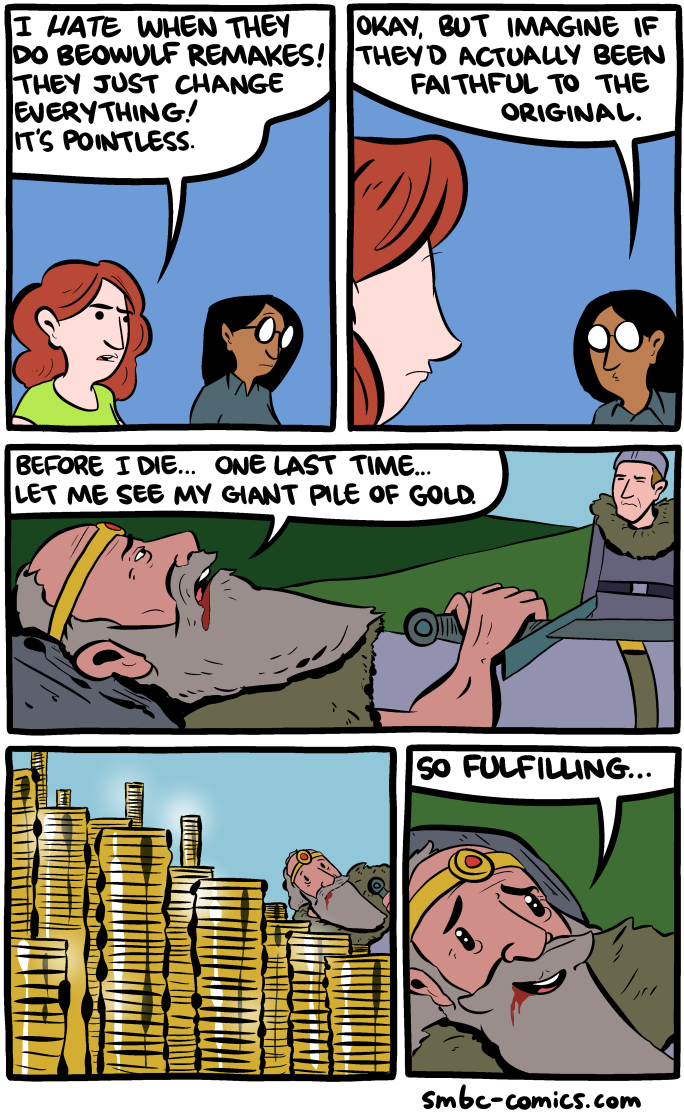Cheetah
Deity
I read an interesting article on how the modern stories with a good side vs an evil side are just that, modern. That until the 19th Century and nationalism, the myths and stories that were told didn't have any moralistic opponents in them.
And that this good vs evil trope is probably harmful.
There's also a long Hacker News thread on the topic.
Personally, I've always found the pure good vs pure evil stories to be rather simplistic and boring. Caricatures which are always good or always evil aren't real, and people don't simply to "evil" just because. I hadn't really thought of how recent this is though, or what the implications of it might be.
So to further enlighten the topic, I decided to check with here: What are your thoughts concerning morality in stories?
And that this good vs evil trope is probably harmful.
the article said:The first time we see Darth Vader doing more than heavy breathing in Star Wars (1977), he’s strangling a man to death. A few scenes later, he’s blowing up a planet. He kills his subordinates, chokes people with his mind, does all kinds of things a good guy would never do. But then the nature of a bad guy is that he does things a good guy would never do. Good guys don’t just fight for personal gain: they fight for what’s right – their values.
[...]
In old folktales, no one fights for values. Individual stories might show the virtues of honesty or hospitality, but there’s no agreement among folktales about which actions are good or bad. When characters get their comeuppance for disobeying advice, for example, there is likely another similar story in which the protagonist survives only because he disobeys advice. Defending a consistent set of values is so central to the logic of newer plots that the stories themselves are often reshaped to create values for characters such as Thor and Loki – who in the 16th-century Icelandic Edda had personalities rather than consistent moral orientations.
[...]
Stories about good guys and bad guys that are implicitly moral – in the sense that they invest an individual’s entire social identity in him not changing his mind about a moral issue – perversely end up discouraging any moral deliberation. Instead of anguishing over multidimensional characters in conflict – as we find in The Iliad, or the Mahabharata or Hamlet – such stories rigidly categorise people according to the values they symbolise, flattening all the deliberation and imagination of ethical action into a single thumbs up or thumbs down. Either a person is acceptable for Team Good, or he belongs to Team Evil.
Good guy/bad guy narratives might not possess any moral sophistication, but they do promote social stability, and they’re useful for getting people to sign up for armies and fight in wars with other nations. Their values feel like morality, and the association with folklore and mythology lends them a patina of legitimacy, but still, they don’t arise from a moral vision. They are rooted instead in a political vision, which is why they don’t help us deliberate, or think more deeply about the meanings of our actions. Like the original Grimm stories, they’re a political tool designed to bind nations together.
[...]
There's also a long Hacker News thread on the topic.
Personally, I've always found the pure good vs pure evil stories to be rather simplistic and boring. Caricatures which are always good or always evil aren't real, and people don't simply to "evil" just because. I hadn't really thought of how recent this is though, or what the implications of it might be.
So to further enlighten the topic, I decided to check with here: What are your thoughts concerning morality in stories?




